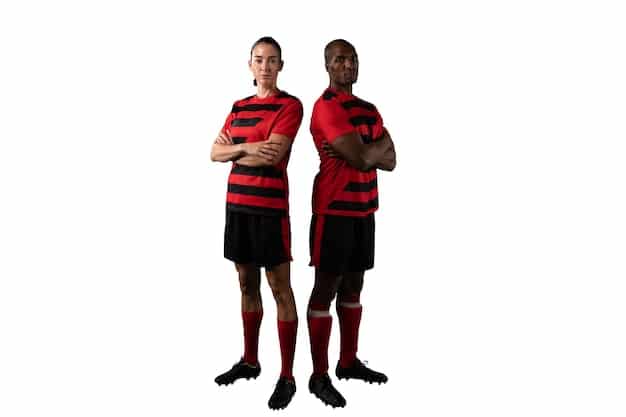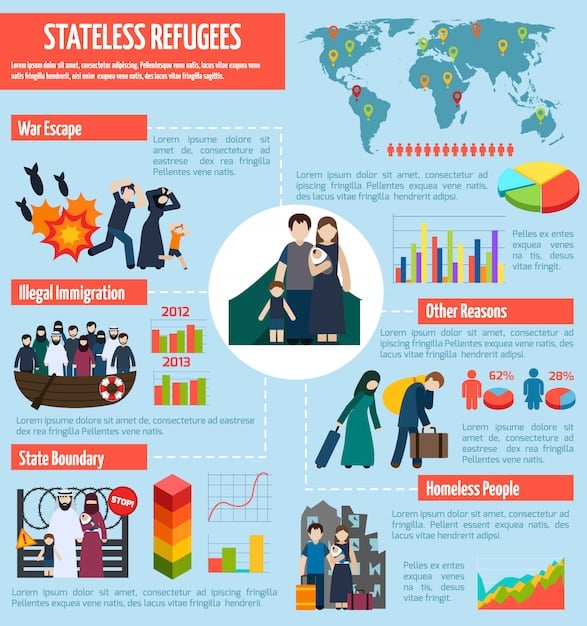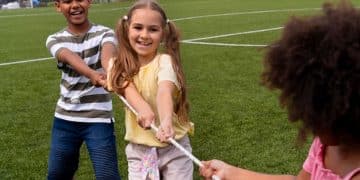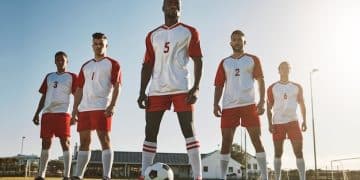FIFA’s Stance on Racism & Discrimination: How US Soccer Responds

FIFA’s firm stance against racism and discrimination is mirrored by US Soccer’s proactive and multi-faceted approach, encompassing educational initiatives, punitive measures, and advocacy for inclusive environments across all levels of the game, demonstrating a commitment to eradicating bias from the sport.
In the global arena of football, where passion and competition converge, the specter of racism and discrimination unfortunately still casts a long shadow. The commitment to combat these pervasive issues stands as a critical challenge for governing bodies worldwide. This article delves into FIFA’s Stance on Racism and Discrimination: How US Soccer is Addressing These Issues, exploring the frameworks established and the specific actions undertaken to foster an inclusive and respectful environment within the beautiful game.
The Global Mandate: FIFA’s Unwavering Anti-Discrimination Stance
FIFA, as the world governing body of football, has unequivocally declared its commitment to confronting racism and all forms of discrimination. This stance is enshrined in its statutes and regulations, making it a cornerstone of fair play and ethical conduct within the sport. The organization views discrimination not merely as a violation of rules but as an affront to the human values that football seeks to promote: respect, diversity, and camaraderie.
Historically, FIFA’s journey to solidify its anti-discrimination policies has been incremental but determined. Initial efforts focused on combating overt acts of racism, such as monkey chants or offensive banners. However, as the understanding of discrimination evolved, so too did FIFA’s approach, expanding to encompass a wider range of discriminatory behaviors based on ethnicity, religion, gender, sexual orientation, disability, and political opinion. This broader scope reflects a deeper awareness of the subtle and overt ways discrimination can manifest within the football ecosystem.
FIFA’s Regulatory Frameworks
At the heart of FIFA’s commitment are its comprehensive regulatory frameworks, designed to deter, detect, and sanction discriminatory acts. These regulations apply to all FIFA-sanctioned matches, competitions, and member associations. The disciplinary code, in particular, outlines specific penalties for discriminatory behavior, ranging from fines and stadium closures to points deductions and even relegation for clubs or national teams.
- Disciplinary Code: Specifies sanctions for discriminatory conduct by players, officials, clubs, and federations.
- Match Officials’ Responsibilities: Empowering referees to stop, suspend, or abandon matches in cases of persistent discriminatory behavior.
- Education and Prevention: Emphasizes the importance of proactive measures to prevent discrimination before it occurs.
Beyond punitive measures, FIFA actively promotes educational campaigns and awareness initiatives. These programs aim to instill values of respect and inclusion from grassroots levels through to professional leagues, recognizing that a cultural shift is as crucial as sanctions in eradicating discrimination. Workshops, seminars, and public service announcements are regularly implemented to foster understanding and empathy among all stakeholders.
However, the implementation of these policies faces inherent challenges. The global nature of football means navigating diverse cultural contexts and legal systems. Ensuring consistent application of rules across hundreds of member associations requires constant vigilance and adaptation. Despite these complexities, FIFA continues to refine its strategies, striving for a world where football is genuinely accessible and welcoming to all, regardless of background.
US Soccer’s Dedicated Anti-Discrimination Program
Mirroring FIFA’s global mandate, US Soccer has developed a robust and multi-faceted anti-discrimination program tailored to the unique landscape of American football. Recognizing the diversity within the United States, US Soccer’s initiatives extend beyond mere compliance, aiming to proactively foster an inclusive and equitable environment at every level of the game, from youth recreational leagues to professional competitions.
The commitment of US Soccer is embedded in its strategic plan, which explicitly outlines goals related to diversity, equity, and inclusion. This isn’t just about rhetoric; it translates into tangible programs and policies designed to address discrimination in its various forms. The organization understands that addressing these issues requires a holistic approach, encompassing education, reporting mechanisms, and clear disciplinary actions.
Key Pillars of US Soccer’s Approach
- Education and Awareness: Mandatory training for coaches, referees, players, and administrators on recognizing and addressing discrimination.
- Reporting Mechanisms: Establishing clear, accessible channels for individuals to report incidents of discrimination without fear of retaliation.
- Punitive Measures: Implementing a stringent disciplinary process for individuals or entities found guilty of discriminatory behavior.
One notable aspect of US Soccer’s strategy is its focus on youth development. By instilling values of respect and fair play from a young age, the organization aims to cultivate a generation of players and fans who actively reject discrimination. This includes curriculum development for youth coaches that integrates anti-bias lessons into training sessions, promoting sportsmanship and empathy as core components of the game.

Furthermore, US Soccer collaborates with various community organizations and advocacy groups to amplify its message and extend its reach. Partnerships with anti-racism organizations, LGBTQ+ rights groups, and disability advocates help to inform and strengthen US Soccer’s initiatives, ensuring they are relevant and responsive to the needs of diverse communities. These collaborations also serve to reinforce the idea that fighting discrimination is a collective responsibility.
The organization also reviews and updates its policies regularly, adapting to new challenges and learning from both successes and setbacks. This iterative process ensures that US Soccer’s anti-discrimination efforts remain effective and impactful in an ever-evolving social landscape. The commitment extends to providing resources and support for victims of discrimination, emphasizing restorative justice where appropriate, alongside punitive measures.
Addressing Racism on the Field: Prevention and Response
Battling racism on the field requires a two-pronged approach: robust prevention strategies and effective, immediate responses when incidents occur. Both FIFA and US Soccer prioritize these aspects to protect players, officials, and fans from discriminatory abuse and to ensure that the game remains a safe and respectful space. Prevention begins long before a match, through education and fostering a culture of zero tolerance for discriminatory behavior.
Prevention relies heavily on clear communication of expectations and consequences. Players are educated through workshops and codes of conduct about what constitutes discriminatory behavior and the severe repercussions it carries. For spectators, stadium announcements, signage, and online campaigns reinforce the message that racism has no place in football. The idea is to create an environment where such actions are not only punished but also socially rejected by the vast majority of attendees.
The “Three-Step Procedure” and On-Field Protocols
FIFA introduced the “three-step procedure” for referees to manage incidents of discrimination during matches, particularly those involving spectator behavior. This protocol empowers officials to take progressive actions to address and de-escalate discriminatory acts:
- Step 1: Stop the Match: The referee temporarily suspends the match and requests a public announcement asking the discriminatory behavior to cease.
- Step 2: Suspend the Match: If the behavior continues, or if it is severe, the referee suspends the match and leads the teams off the field until the situation is resolved.
- Step 3: Abandon the Match: As a last resort, if the discriminatory behavior persists or reaches an intolerable level after suspension, the referee may abandon the match entirely.
US Soccer has adopted and adapted similar protocols for its domestic competitions, ensuring that referees are trained and empowered to implement these steps effectively. This provides a clear framework for officials to manage challenging situations in real-time, demonstrating a firm commitment to player safety and the integrity of the game. The psychological impact of racial abuse on players can be profound, making swift and decisive action imperative.
Beyond immediate on-field responses, both organizations emphasize post-match investigations and disciplinary actions. Incidents reported by players, officials, or witnessed by observers are thoroughly investigated, and appropriate sanctions are applied. This includes penalties for clubs whose fans engage in discriminatory behavior, serving as a deterrent and encouraging clubs to take responsibility for the conduct within their stadiums.
However, challenges persist in identifying perpetrators, especially in large crowds, and ensuring consistent application of rules across diverse contexts. Technology, such as CCTV and social media monitoring, plays an increasingly important role in aiding these investigations. The ultimate goal is to remove the perpetrators from the football environment and send a strong message that racism will not be tolerated, ensuring that the focus can remain on the sport itself.
Beyond Race: Addressing Other Forms of Discrimination in Soccer
While racism often garners significant attention due to its pervasive historical presence in sports, FIFA and US Soccer recognize that discrimination extends far beyond racial prejudice. Their policies and initiatives are designed to combat all forms of bias, including those based on gender, sexual orientation, religion, disability, and socio-economic status. A holistic approach is essential to cultivating truly inclusive environments within football.
Gender equality, for instance, is a critical area of focus. Historically, women’s football has faced significant disparities in resources, media coverage, and professional opportunities. Both FIFA and US Soccer are actively working to rectify these imbalances, promoting equal pay, professionalization of women’s leagues, and increased representation of women in leadership roles. This includes initiatives like “Women’s Football Strategy” by FIFA and US Soccer’s commitment to equal treatment for its men’s and women’s national teams.
Inclusivity Across Diverse Groups
- LGBTQ+ Inclusion: Creating safe spaces for LGBTQ+ players, staff, and fans, often through campaigns against homophobia and transphobia in sports.
- Disability Inclusion: Ensuring accessibility for players and spectators with disabilities, and promoting para-football opportunities.
- Religious and Cultural Sensitivity: Respecting diverse religious practices and cultural norms within the football community.
Addressing discrimination based on sexual orientation is another evolving area. Campaigns like “Football for All” (FIFA) and internal initiatives at US Soccer aim to challenge homophobic and transphobic attitudes. This includes advocating for environments where LGBTQ+ individuals feel safe to be themselves, free from harassment and discrimination, both on and off the pitch. The visibility of out athletes and allies plays a crucial role in normalizing diversity.

Moreover, both organizations are increasingly attentive to the needs of individuals with disabilities. This involves not only ensuring physical accessibility at stadiums but also promoting various forms of para-football (e.g., amputee football, cerebral palsy football, blind football) to provide opportunities for all to participate. The goal is to make football a truly universal and accessible sport, reflecting the diverse abilities of humanity.
The challenge lies in continuously educating stakeholders and adapting policies to address subtle and emerging forms of discrimination. This requires ongoing dialogue, research, and a willingness to confront uncomfortable truths. By expanding their focus beyond racism to encompass all facets of discrimination, FIFA and US Soccer demonstrate a commitment to creating environments where everyone feels valued, respected, and has an equal opportunity to enjoy and contribute to the game.
US Soccer’s Partnership with Community and Advocacy Groups
US Soccer understands that fighting discrimination is not a battle to be fought in isolation. Recognizing the depth of expertise and reach that community and advocacy groups possess, the organization has actively forged partnerships to strengthen its anti-discrimination efforts. These collaborations are crucial for gaining deeper insights into specific issues, developing more effective strategies, and extending the impact of their initiatives beyond traditional football circles.
Working with organizations that specialize in anti-racism, LGBTQ+ rights, disability inclusion, and other areas of social justice provides US Soccer with invaluable perspectives. These groups often have direct experience with the challenges faced by marginalized communities and can offer nuanced advice on how to create genuinely inclusive policies and programs. This collaborative approach enhances the credibility and effectiveness of US Soccer’s commitment to diversity.
Key Benefits of Community Partnerships
- Enhanced Expertise: Access to specialized knowledge on various forms of discrimination and best practices for addressing them.
- Increased Reach: Leveraging established networks to promote anti-discrimination messages to a wider audience.
- Authenticity and Trust: Building stronger relationships with diverse communities by demonstrating a willingness to listen and collaborate.
For example, partnerships with civil rights organizations can help US Soccer develop more culturally sensitive educational materials and ensure that reporting mechanisms are accessible and trusted by all communities. Collaborations with LGBTQ+ sports groups can inform policies that protect and support queer athletes and fans, fostering an environment where all feel safe and welcome to participate openly.
These partnerships often involve joint training programs, shared resources, and collective advocacy efforts. Community groups may assist in delivering workshops, organizing awareness campaigns, or providing feedback on proposed policies. This hands-on collaboration ensures that US Soccer’s initiatives are not just top-down directives but are also informed by the lived experiences and insights of the communities they aim to serve.
Such alliances also serve to demonstrate US Soccer’s genuine commitment to social responsibility. By actively engaging with external experts and advocates, the organization signals that its anti-discrimination efforts are deeply rooted in a desire for meaningful change, rather than merely superficial compliance. This collaborative model is a testament to the idea that collective action is essential to dismantle systemic discrimination and build a more inclusive future for football in the United States.
Challenges and Future Directions in Combating Discrimination
Despite significant progress and unwavering commitments from FIFA and US Soccer, the fight against discrimination in football is far from over. Numerous challenges persist, requiring continuous adaptation, resource allocation, and a willingness to confront difficult realities. Understanding these obstacles is crucial for charting effective future directions and ensuring that the progress made is both sustainable and impactful.
One primary challenge is the pervasive nature of unconscious bias and systemic discrimination. While overt acts of racism and prejudice are often condemned, subtle biases can still create unwelcoming environments. This requires a deeper cultural shift, moving beyond mere rule enforcement to genuinely fostering empathy and understanding. Education needs to delve into these deeper forms of bias, including microaggressions and tokenism, which can be equally damaging.
Persistent Obstacles and Emerging Concerns
- Online Abuse: The rise of social media introduces new avenues for discriminatory abuse, often anonymous and difficult to track.
- Socio-Economic Barriers: Ensuring equal access to football for individuals from disadvantaged backgrounds, which can often be overlooked.
- Consistency of Enforcement: The challenge of ensuring uniform application of anti-discrimination policies across all levels and regions.
Another significant hurdle is the global reach of football. Different cultural contexts and legal frameworks mean that what is considered discriminatory in one region might be perceived differently elsewhere. While FIFA strives for universal standards, adapting enforcement mechanisms to local nuances without compromising core principles remains a complex task. This calls for a nuanced approach that balances global mandates with local sensitivities.
The proliferation of social media has also introduced new fronts in the battle against discrimination. Players and officials are increasingly subjected to online abuse, which is often difficult to police and prosecute effectively. Both FIFA and US Soccer are exploring partnerships with social media platforms and developing strategies to combat this digital form of discrimination, recognizing its severe psychological impact on victims.
Looking ahead, future directions will likely focus on increased data collection and analysis to better understand the prevalence and forms of discrimination, developing more sophisticated AI-powered detection tools for online abuse, and investing more heavily in mental health support for those affected by discriminatory incidents. There will also be a continued emphasis on promoting diversity in leadership positions within football organizations themselves, ensuring that decision-making bodies reflect the diverse communities they serve.
Ultimately, the long-term success of anti-discrimination efforts will depend on a collective commitment from all stakeholders – players, fans, clubs, federations, and governing bodies – to create a truly inclusive and equitable sport. It is an ongoing journey that demands vigilance, education, and unwavering dedication to the values of respect and fair play that lie at the heart of football’s universal appeal.
| Key Point | Brief Description |
|---|---|
| 🌍 FIFA’s Mandate | Global governing body with robust anti-discrimination statutes and disciplinary measures. |
| 🇺🇸 US Soccer’s Approach | Proactive, multi-faceted program for inclusion, tailored to US diversity from youth to pro levels. |
| ⚽ On-Field Protocols | Referees use a “three-step procedure” to manage and escalate discriminatory incidents during matches. |
| 🤝 Community Partnerships | US Soccer collaborates with advocacy groups to enhance expertise and foster trust with diverse communities. |
Frequently Asked Questions
▼
FIFA maintains a zero-tolerance policy towards racism and all forms of discrimination, enshrined in its statutes and disciplinary code. It mandates clear sanctions for discriminatory behavior and actively promotes educational initiatives to foster respect and inclusion throughout global football.
▼
US Soccer integrates anti-discrimination policies through education, clear reporting mechanisms, and strict punitive measures. It provides mandatory training, establishes accessible channels for reporting incidents, and applies stringent sanctions, working from grassroots to professional levels to ensure an inclusive environment.
▼
The “three-step procedure” allows referees to stop, suspend, or abandon a match in cases of persistent discriminatory behavior, particularly from spectators. This progressive approach ensures immediate action on the field while providing clear protocols for addressing severe incidents.
▼
Yes, US Soccer’s anti-discrimination efforts extend to all forms of bias, including those based on gender, sexual orientation, religion, and disability. The organization actively works to promote inclusivity for all communities, recognizing the multifaceted nature of discrimination in sports.
▼
Community partnerships enhance US Soccer’s anti-discrimination initiatives by providing specialized expertise, increasing reach into diverse communities, and fostering authenticity and trust. Collaborating with advocacy groups ensures policies are informed by lived experiences and are more effective.
Conclusion
The concerted efforts of FIFA and US Soccer unequivocally demonstrate a profound commitment to eradicating racism and discrimination from the beautiful game. Through systematic regulatory frameworks, comprehensive educational programs, and the implementation of robust on-field protocols, both organizations are striving to cultivate environments where diversity is celebrated, and every individual, regardless of background, feels valued and respected. While challenges undoubtedly persist, the ongoing dedication to fostering inclusivity, coupled with strategic partnerships and a forward-looking approach to emerging issues like online abuse, signals a clear path towards a more equitable and welcoming future for football globally and within the United States.





